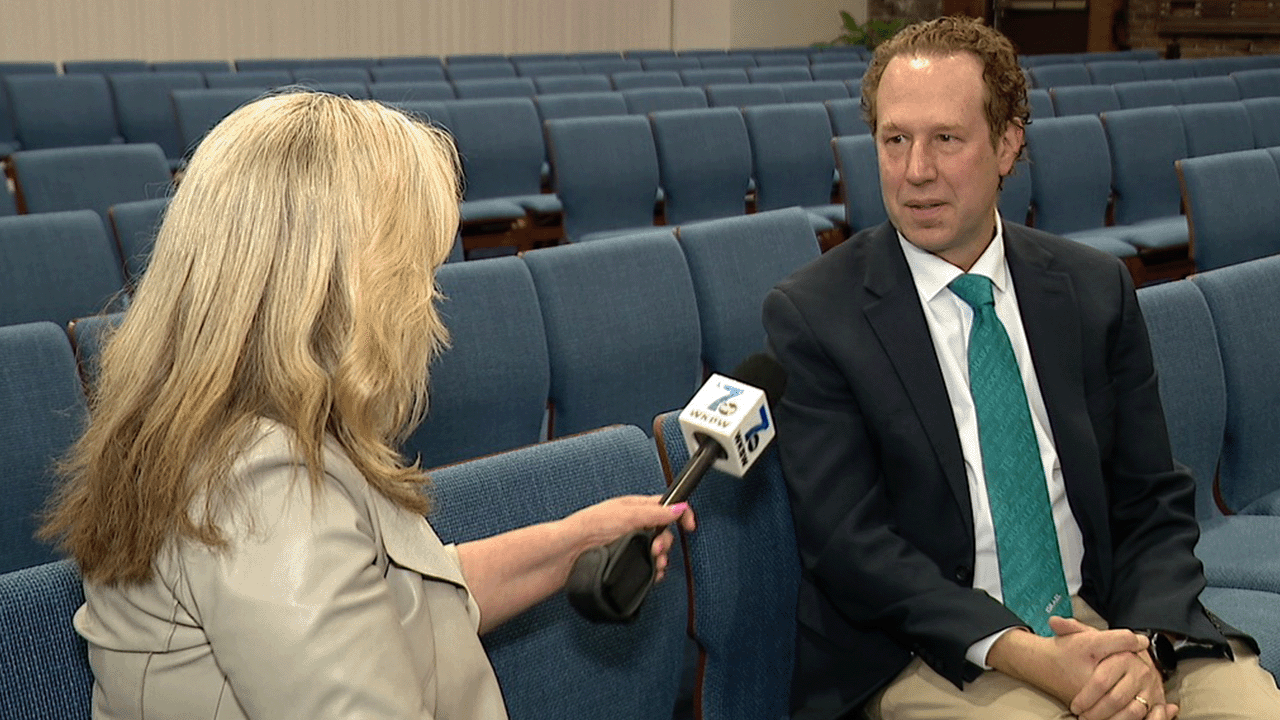AMHERST, NY (WKBW) — Hundreds gathered in southern Israel on Tuesday, marking two years since the October 7 attack that plunged the Middle East into a devastating war, while Western New York Jewish communities continue to grapple with the ongoing trauma and rising antisemitism.

It was on that night two years ago when Hamas attacked an Israeli music festival, killing 1,200 people and taking 250 more hostage. Most of those hostages have been released, but 48 remain inside Gaza.
Negotiations continue in Egypt between Israel and Hamas. President Trump remains optimistic that a deal can be reached to release those hostages and end the war. But events of two years ago and the ongoing war continue to take a toll on local Jewish communities.
WATCH: WNY Jewish community reflects on trauma two years after October 7 attack
"Our community has really been traumatized," said Rabbi Alex Lazarus-Klein. “It's truly been devastating.”
I met with Lazarus-Klein at Congregation Shir Shalom in Amherst to discuss his reflections on the Hamas-led attack two years ago in Israel.
"It's almost as if that day just has been there this whole time, and it's been terrible," Lazarus-Klein said.

It is at the synagogue that Lazarus-Klein provides comfort to his congregation. He says the last 24 months have been the most intense time as a Jewish man.
"If I were going to go back in time, a couple of years and come back to this moment, I wouldn't believe it, just the sense of threat, the lack of security, the attacks on our identity," Lazarus-Klein said. "It's constant and unending, and it's very, very difficult."
Lazarus-Klein tells me the Jewish community continues to face antisemitism.

"Antisemitism comes out, and Jews have been under attack for thousands of years," Lazarus-Klein said. "Every time we think that we're safe, something switches, and suddenly the situation changes."
When asked if he feels unsafe personally, Lazarus-Klein said no, but acknowledged concerns within his community.
"I know in our community that we do, and I talk about when I was growing up, you know, in the 70s and 80s, it really did feel unsafe," Lazarus-Klein said. "I had to look behind my back. I was worried about wearing Jewish symbols. And then it kind of went away for a while, and we've been reminded in a really big way that there are, there is a target on our back, unfortunately."
Despite the challenges, the rabbi remains hopeful as cease-fire talks continue.

"I hope that the hostages are returned," Lazarus-Klein said. "I hope that the society can start to heal our Jewish community here locally and in Israel, can finally move on from this just terrible time period we've been in."
This story was reported on-air by a journalist and has been converted to this platform with the assistance of AI. Our editorial team verifies all reporting on all platforms for fairness and accuracy.




